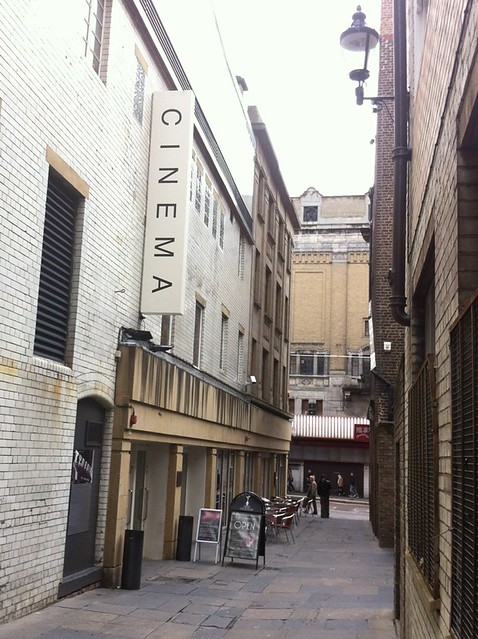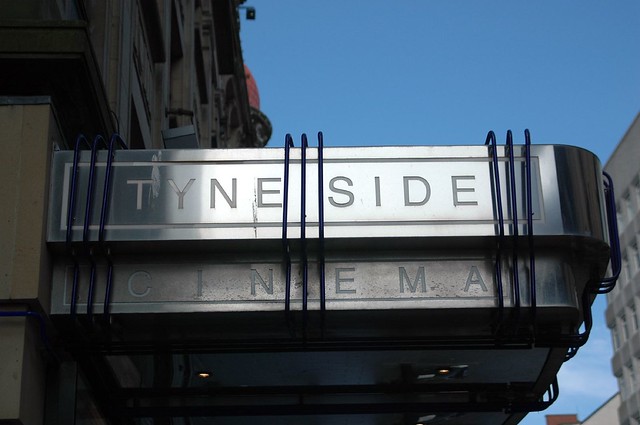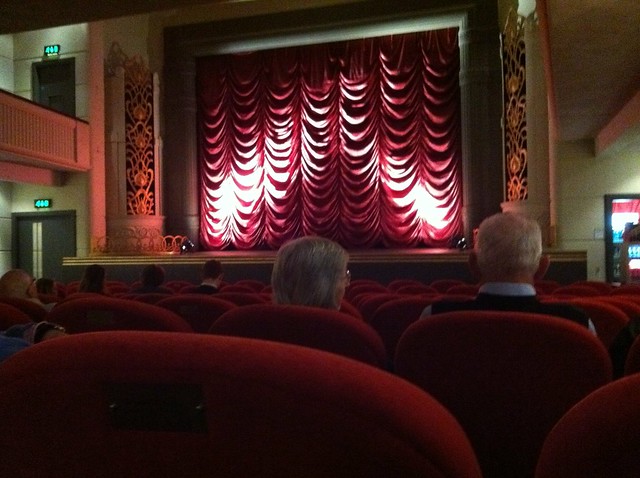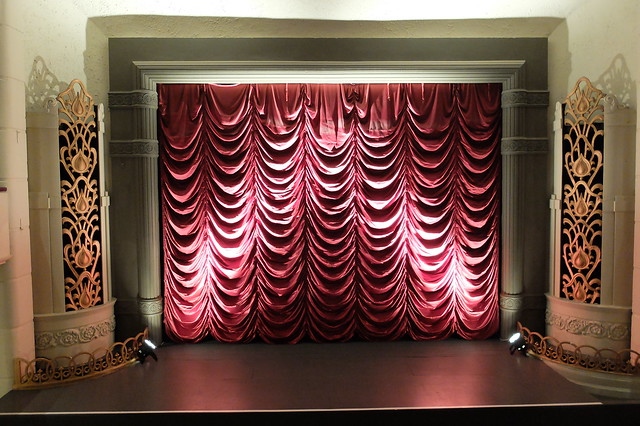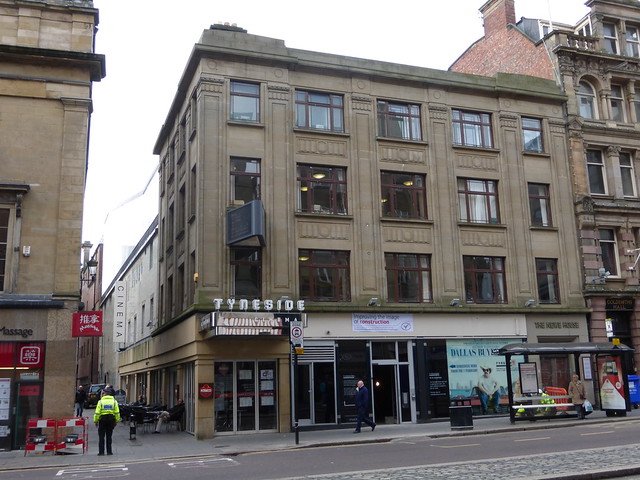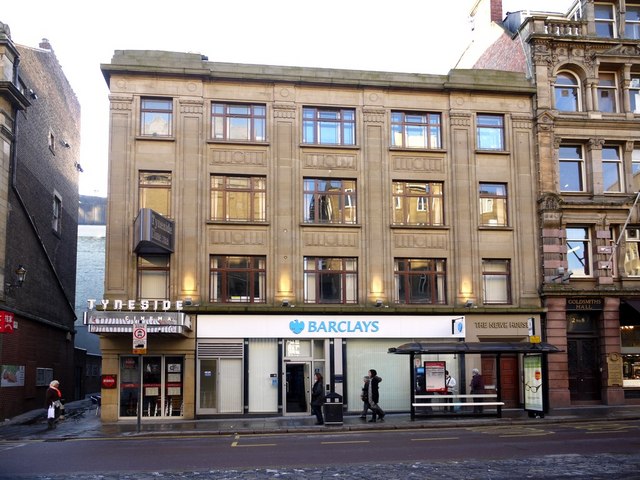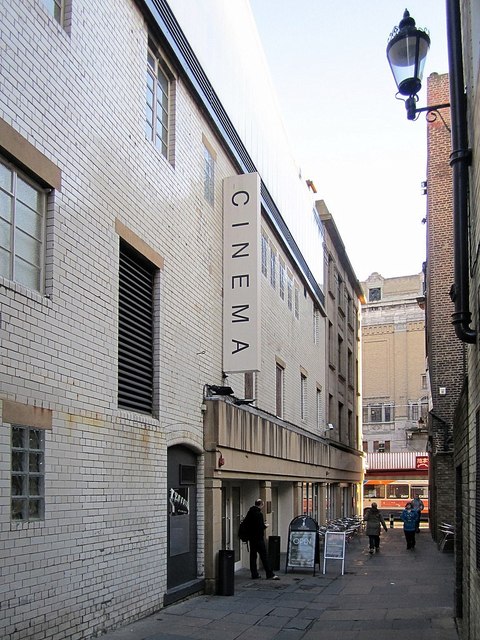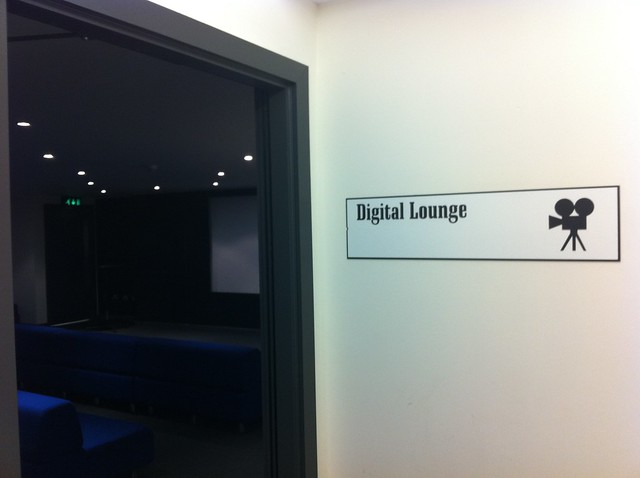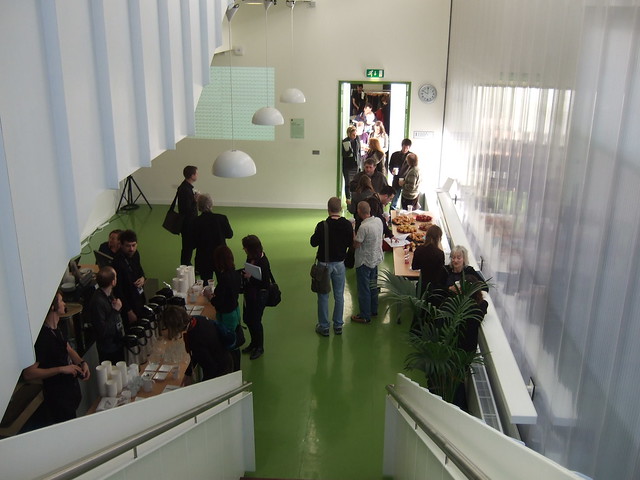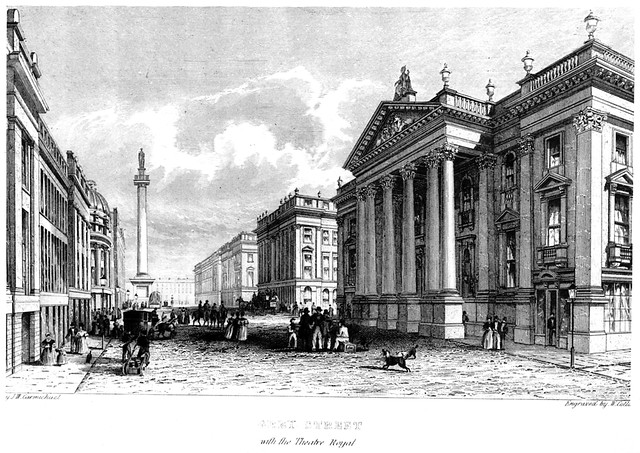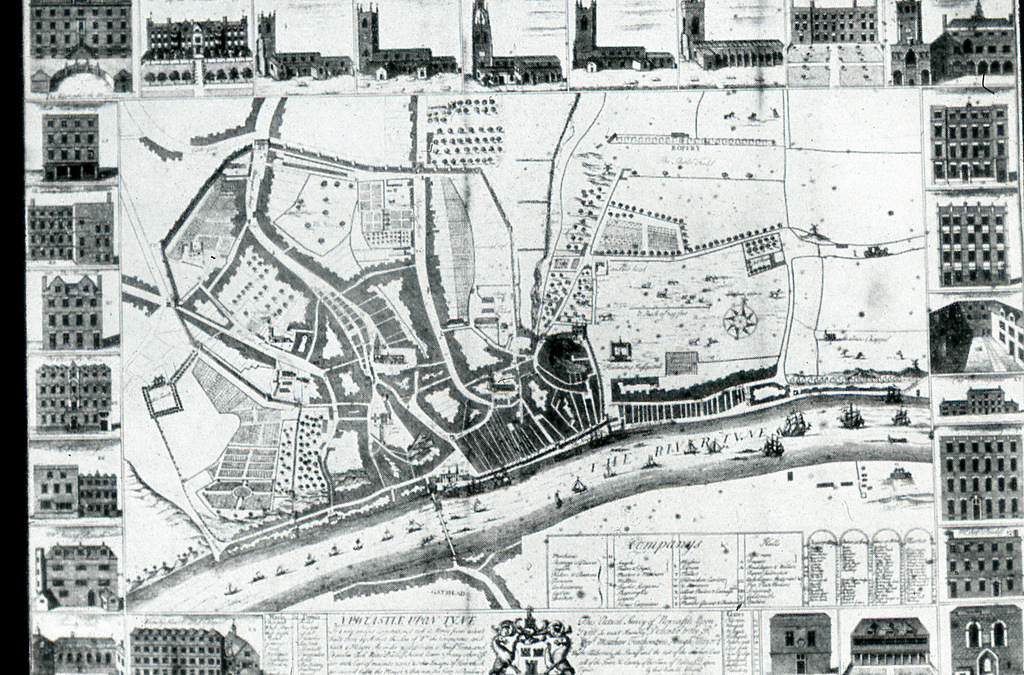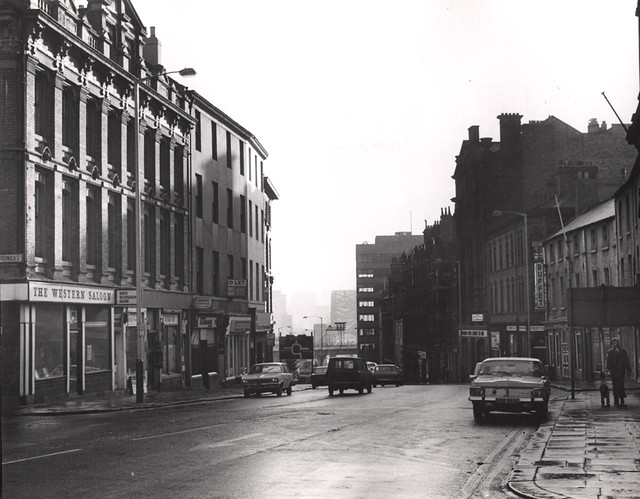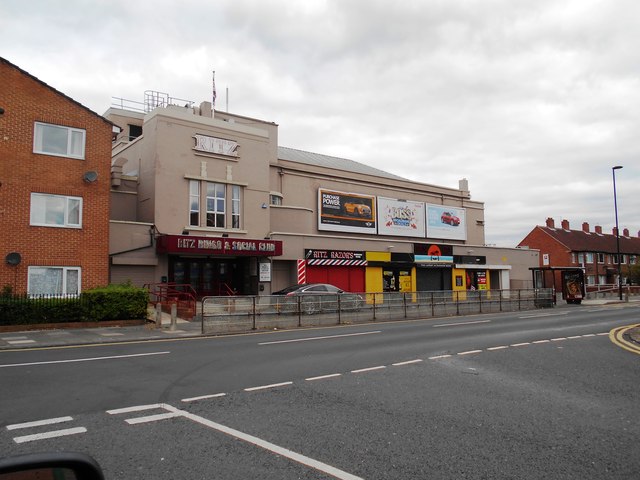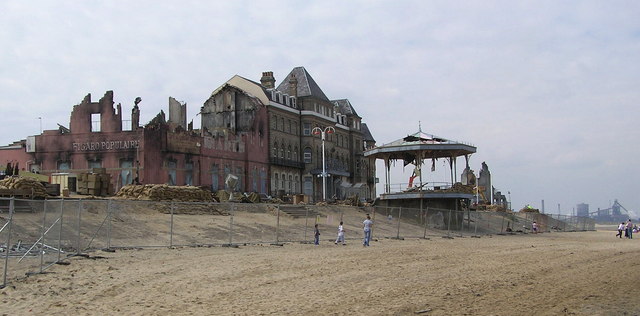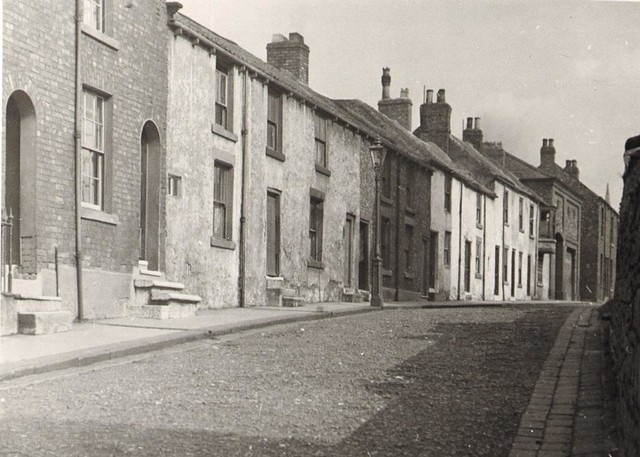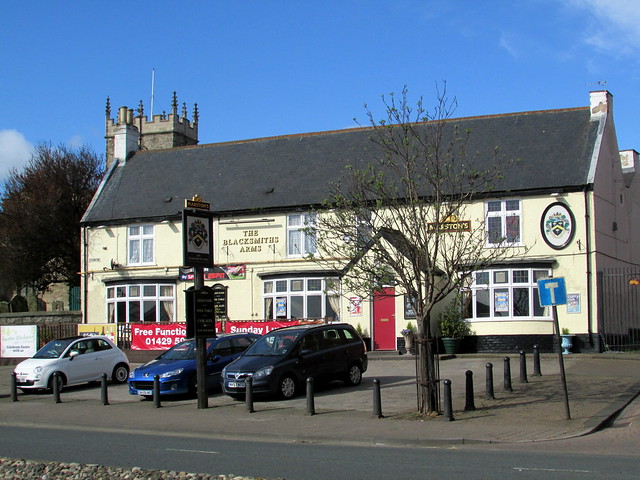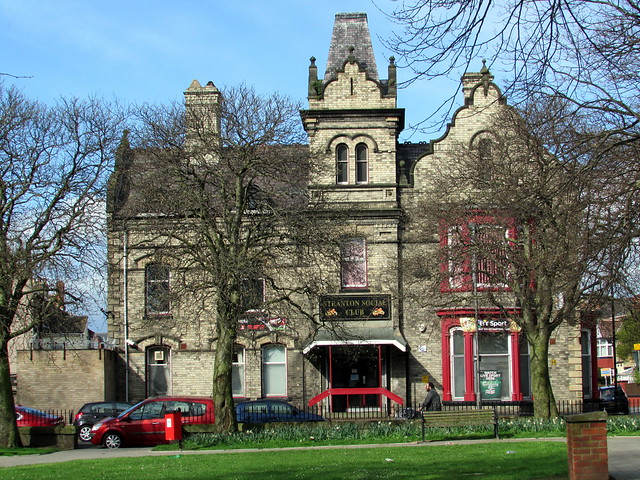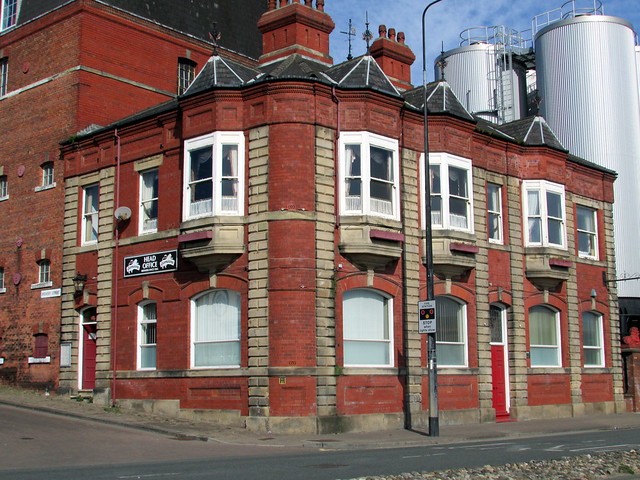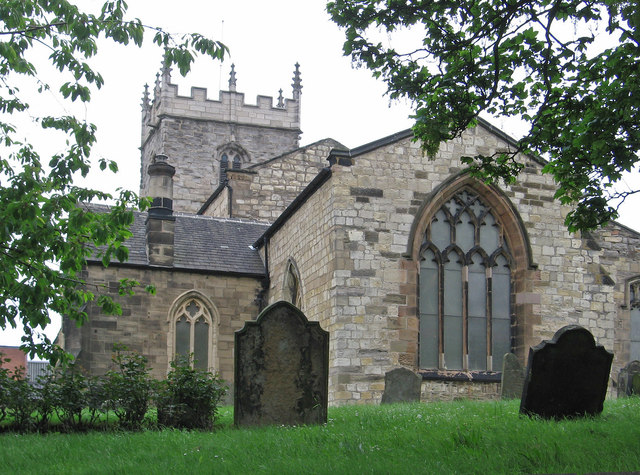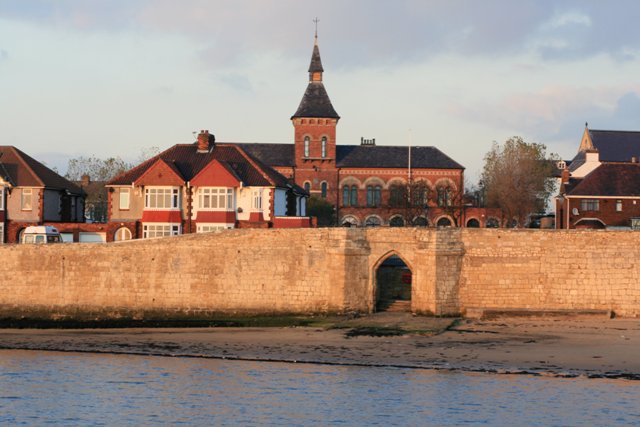Topics > Newcastle City Centre > Streets > Pilgrim Street > Tyneside Cinema
Tyneside Cinema
The Tyneside Cinema is an independent cinema located off Pilgrim Street in Newcastle. The cinema originally opened on the 1st of February 1937 and was known as the 'News Theatre' - in the 1930's, before television, news cinemas where built all around the country showing newsreels, topical interest films and cartoons.[1] The Tyneside reopened on the 22nd of May 2008, after a major restoration, retaining its Art Deco style features. The cinema is one of the best surviving purpose-built newsreel cinemas in Britain, incorporating a rare example of a fine cinema cafe, and is Grade II listed on the National Heritage List for England.
The Tyneside Cinema is an independent cinema in Newcastle upon Tyne. It is the city's only full-time independent cultural cinema, specialising in the screening of independent and world cinema from across the globe. The last remaining Newsreel theatre to be in full-time operation in the UK, it is a Grade II-listed building. The Tyneside's patrons are filmmakers Mike Figgis and Mike Hodges, and musicians Neil Tennant of the Pet Shop Boys and Paul Smith of Maxïmo Park.
Alongside its core programme of cultural cinema, the newly refurbished Tyneside Cinema holds daily free screenings of archive newsreel footage and guided tours. The cinema also allows budding producers and digital artists to network and present their work. A £7m restoration and renovation project occurred between 2006 and 2008, and the venue now boasts digital projection and 3D facilities alongside traditional film projection.
History
The Tyneside building was conceived, designed and built by Dixon Scott, a local entrepreneur and the Great Uncle of film directors Sir Ridley and Tony Scott. Scott had travelled in the Middle and Far East, and his experiences influenced the décor of the first floor landing and foyer of the Tyneside building. Scott decorated the building with his own take on Art Deco, as influenced by his Eastern travels.
The Tyneside Cinema was opened as a news cinema, the Bijou News-Reel Cinema on 1 February 1937, and was commonly known as the News Theatre. Screenings would include a mixture of travel, sport, and news films, as well as cartoons.
In 1937, the cinema became the home of the Tyneside Film Society, the origin of the Tyneside Cinema itself which, by the late 1950s, had grown into the largest film society in the UK outside London. The popularity of television led to a decline in audiences and consequently the cinema was closed in 1968. After a brief period it was reopened as a film theatre by the BFI. The cinema closed again in 1975. A case for re-opening the cinema, then known as the Tyneside Film Theatre, was put together by the Tyneside Filmgoers Group.
Restoration and reopening
The cinema had occupied its Pilgrim Street site since 1937, and had by 1999 declined to a critical state, with many believing it would eventually be forced to close. The cinema required a number of improvements, and despite its history and prime location, the cinema had a serious financial deficit. A significant investment in the structure was required, and following a survey of the building, the cinema's board of trustees realised that a capital investment of about £7m would be necessary. The project secured the support of organisations including One North East and the Northern Rock Foundation Seats removed from the Classic screen were sold in 2006, raising more than £5000 for the restoration project. The stated aim of the project was to celebrate the cinema's heritage as a newsreel theatre and also look to its future in the digital age.
The £7m restoration and renovation project was undertaken between November 2006 and May 2008. Original features inside the building had to be protected during the project, and the work uncovered a pair of original stained glass windows and mosaic floor tiling which had been hidden for years. Expanding the cinema in its town centre location was difficult due to the limited space available. Building works proceeded upwards, and the area between the cinema and its neighbouring building was also used.
The cinema obtained a temporary lease at Gateshead’s Old Town Hall, which allowed the cinema to screen films in a single theatre under the Tyneside Cinema brand. Themed screenings were held across Newcastle to allow the public access to the Tyneside Cinema experience as work on the restoration project continued. These included a screening of It’s a Wonderful Life at the Discovery Museum with mulled wine and mince pies for attendees, and a screening of Monty Python's Life of Brian at St. Mary’s Church.
The Tyneside reopened in May 2008, following the major restoration of its original auditorium, alongside a modern extension and redevelopment of the upper floors designed by Fletcher Priest Architects and consulting engineers Cundall. The work added a new level to the building with two new screens, the Roxy and the Electra, housed on top of each other. A single projection block behind serves all of the cinema's screens. The increase in screens enabled more flexibility to respond to demand, and created space to move films around. A new bar, and a film learning centre called the Tyneside Studio, partly designed by filmmaker Mike Figgis, were also installed.
The project was completed with support from the Heritage Lottery Fund, Tyne And Wear Partnership, the European Regional Development Fund and many other trusts and foundations. The Tyneside project was also supported by members of the public, with over 700 individual donors giving to the redevelopment.
In 2014 the cinema was expanded by the addition of a bar cafe in adjoining premises which had previously been occupied by a bank.
Awards
The Tyneside Cinema won the Building Conservation and Tourism and Leisure categories as well as the overall accolade Project of the Year at the 2009 Royal Institution of Chartered Surveyors North East Renaissance Awards at Newcastle Civic Centre on 25 April 2009. Judges described the Tyneside Cinema restoration as “an excellent example of a building conservation project”, calling the cinema “a successful commercial venture that has employed creative and innovative design to breathe new life into a leisure facility that is rare and in many ways unique, a project that is playing a regenerative role in the widest sense of the word”.
Visit the page: Tyneside Cinema for references and further details. You can contribute to this article on Wikipedia.

from https://www.tynesidecinema.co…
Tyneside Cinema
- Official Website of the cinema.
Added by
Simon Cotterill
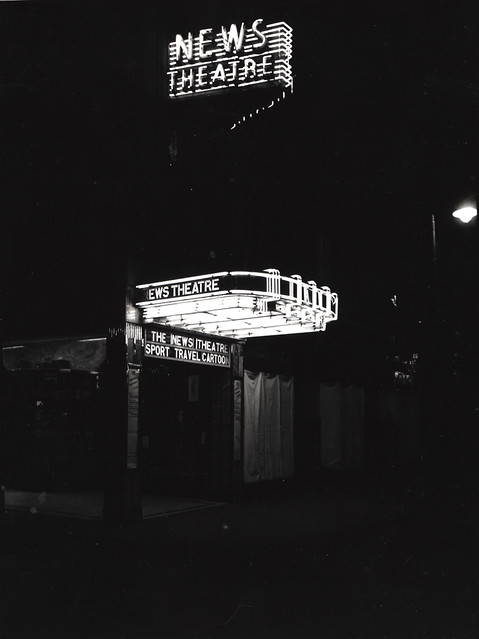
from Newcastle libraries (flickr)
062528:News Theatre Pilgrim Street Newcastle upon Tyne Unknown c.1938
Pinned by Simon Cotterill
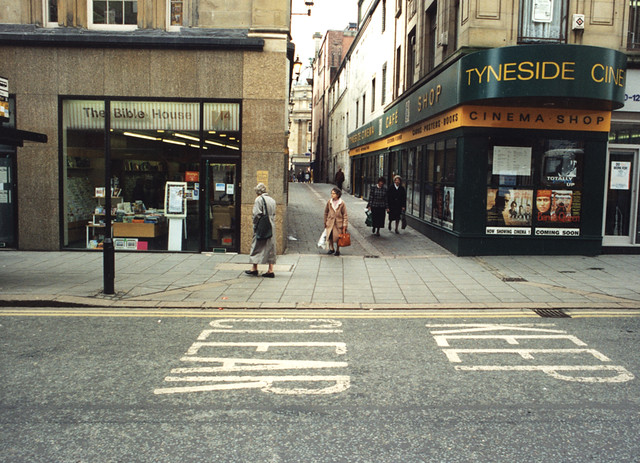
from Newcastle libraries (flickr)
061497:High Friars Lane/Pilgrim Street Newcastle upon Tyne Maybury Malcolm 1995
Pinned by Simon Cotterill
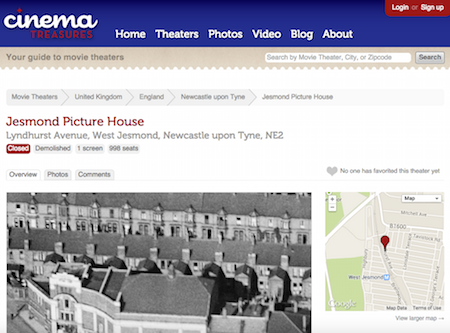
from http://cinematreasures.org/th…
Tyneside Cinema
- "Opened as the News Theatre on 1st February 1937, as its name suggests its programming was newsreels, documentaries, short subjects and cartoons. Programmes were continuous and were of 75 minutes …
Added by
Simon Cotterill


from https://www.tynesidecinema.co…
Tyneside Cinema
- Official Website of the cinema.
Added by
Simon Cotterill

from Newcastle libraries (flickr)
062528:News Theatre Pilgrim Street Newcastle upon Tyne Unknown c.1938
Pinned by Simon Cotterill

from Newcastle libraries (flickr)
061497:High Friars Lane/Pilgrim Street Newcastle upon Tyne Maybury Malcolm 1995
Pinned by Simon Cotterill

from http://cinematreasures.org/th…
Tyneside Cinema
- "Opened as the News Theatre on 1st February 1937, as its name suggests its programming was newsreels, documentaries, short subjects and cartoons. Programmes were continuous and were of 75 minutes …
Added by
Simon Cotterill
